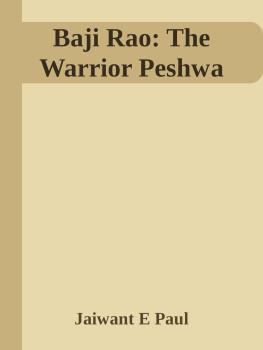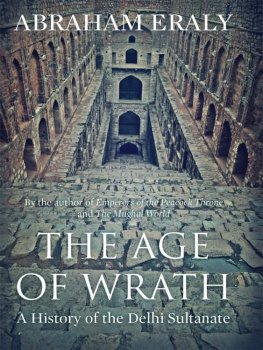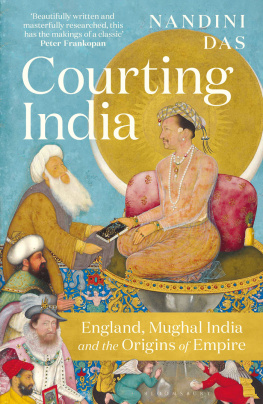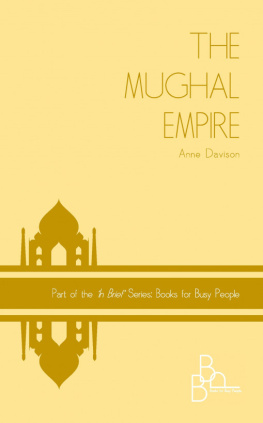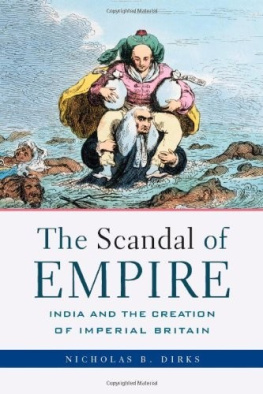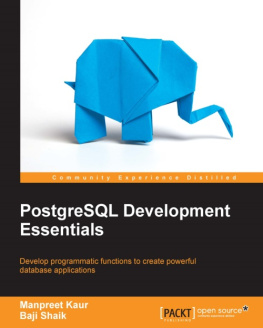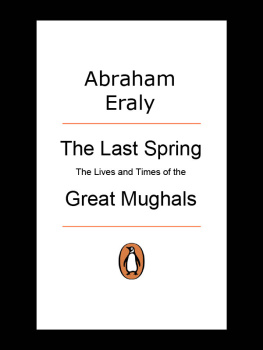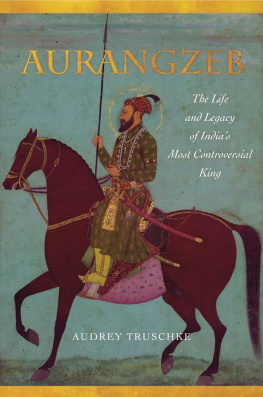OTHER TITLES BY E. JAIWANT PAUL
Annals & Antiquities of Rajasthan
By My Sword and Shield: Traditional Weapons of the Indian Warrior
Har Dayal: The Great Revolutionary
The Greased Cartridge: The Heroes and Villains of 1857-58
The Story of Tea
OTHER LOTUS TITLES
Adi B. Hakim,
Rustom B. Bhumgara
& Jal P. Bapasola | With Cyclists Around The World |
Ajit Bhattacharjea | Sheikh Mohammad Abdullah: Tragic Hero of Kashmir |
Anil Dharker | Icons: Men & Women Who Shaped Todays India |
Aitzaz Ahsan | The Indus Saga: The Making of Pakistan |
Ajay Mansingh | Firaq Gorakhpuri: The Poet of Pain & Ecstasy |
Amarinder Singh | The Last Sunset: The Rise & Fall of the Lahore Durbar |
Hamish Mcdonald | Ambani & Sons |
John Lal | Begam Samru: Fading Portrait in a Gilded Frame |
Lakshmi Vishwanathan | Women of Pride: The Devdasi Heritage |
Lucy Peck | Agra: The Architectural Heritage |
Lucy Peck | Delhi a Thousand Years of Building: An INTACH-Roli Guide |
Madan Gopal | My Life and Times: Munshi Premchand |
M.J. Akbar | Byline |
M.J. Akbar | Blood Brothers: A Family Saga |
Maj. Gen. Ian Cardozo | Param Vir: Our Heroes in Battle |
Maj. Gen. Ian Cardozo | The Sinking of INS Khukri: What Happened in 1971 |
Madhu Trehan | Tehelka as Metaphor |
Monisha Rajesh | Around India in 80 Trains |
Noorul Hasan | Meena Kumari: The Poet |
Peter Church | Profiles in Enterprise: Inspiring Stories of Indian Business Leaders |
Rajika Bhandari | The Raj on the Move: Story of the Dak Bungalow |
Ralph Russell | The Famous Ghalib: The Sound of my Moving Pen |
R.V. Smith | Delhi: Unknown Tales of a City |
Salman Akthar | The Book of Emotions |
Sharmishta Gooptu | Bengali Cinema: An Other Nation |
Shovana Narayan | Kathak |
Shrabani Basu | Spy Princess: The Life of Noor Inayat Khan |
S. Hussain Zaidi | Dongri to Dubai |
Sunil Raman &
Rohit Aggarwal | Delhi Durbar: 1911 The Complete Story |
Thomas Weber | Going Native: Gandhis Relationship with Western Women |
Thomas Weber | Gandhi at First Sight |
FORTHCOMING TITLES |
Kunal Purandare | Ramakant Achrekar: A Biography |
ROLI BOOKS
This digital edition published in 2016
First published in 2016 by
The Lotus Collection
An Imprint of Roli Books Pvt. Ltd
M-75, Greater Kailash- II Market
New Delhi 110 048
Phone:++91 (011)40682000
Email:
Website: www.rolibooks.com
Copyright E. Jaiwant Paul
All rights reserved.
No part of this publication may be reproduced, transmitted, or stored in a retrieval system, in any form or by any means, whether electronic, mechanical, print reproduction, recording or otherwise, without the prior permission of Roli Books. Any unauthorized distribution of this e-book may be considered a direct infringement of copyright and those responsible may be liable in law accordingly.
eISBN: 978-93-5194-120-0
All rights reserved.
This e-book is sold subject to the condition that it shall not, by way of trade or otherwise, be lent, resold, hired out, or otherwise circulated, without the publisher's prior consent, in any form or cover other than that in which it is published.
Prologue
T his is the story of Peshwa Baji Rao, the great Maratha general and statesman, who in the mid-eighteenth century changed the map of India. He transformed the Maratha nation state into an empire. His military genius and policy of extending the Maratha power towards north India had far-reaching and spectacular results and enabled the Marathas, within the next 25 years, to plant their bhagwa or swallow-tailed, deep orange coloured flag on the Indus.
Brave as a tiger and handsome as a god, Baji Rao was also a fascinating character. A man like him is difficult to explain in terms of heritage, training or upbringing. He was perhaps endowed with unusual yearnings of the life-force or with an unquenchable ambition and fervour that spurred him to struggle with destiny. In medieval times, conquests and victories in battles were the most charismatic of accomplishments. Born with a sword in his hand, Baji Rao became a legend while still a young man and tragically died while still in his prime.
Baji Rao had a galaxy of contemporaries, both friends and adversaries, who have left their mark on history. This is, therefore, necessarily also the story of the other great personages like Nizam ul Mulk, the distinguished founder of Hyderabad state; Sawai Jai Singh of Jaipur, general, statesman, astronomer and town planner; Kanhoji Angre, the daredevil naval commander who made life a misery for the English and the Portuguese; Raja Chattarsal, the heroic king who carved out an independent kingdom in Bundelkhand; and this is also the story of Mastani, Chattarsals daughter and Baji Raos great love. The paths of all these remarkable and dramatic people crossed, but each one of them was overshadowed by Baji Raos achievements and they owe their place in history mainly in relation to him. Other players in the drama are Ranoji Scindia, Malharrao Holkar, Udaiji Pawar and Pilaji Gaikwad, distinguished generals and founders of the great states of Gwalior, Indore, Dhar and Baroda.
In this account the markers of history are not ignored; sometimes, however, the stories of these great men, whose lives intertwined, come to the fore and dominate. But then history walks into these stories and steals the scene without the thunder of a cannon or beat of a kettledrum. Occasionally, the chronological order of events has been ignored to make the storytelling better.
After the death of Aurangzeb in 1707, the fortunes of the Marathas, particularly Baji Rao, became closely linked with those of Delhi. The later Mughals, who were nearing the end of their journey, therefore, provide the historical backdrop for this pageant. Here was one of the greatest empires on earth declining slowly into hopelessness and tragedy. The reigns of the six Mughal Emperors after Aurangzeb extended to a mere 41 years. Some were imbeciles, others degenerates, and they only hastened the demise of the dynasty. The country was at the crossroads of history and at that critical juncture, Peshwa Baji Rao marched on to the stage. Over the next two decades he dominated the scene conquering Gujarat, Malwa and Bundelkhand and even leading his army to imperial Delhi, while the Mughal Empire sank into decay and decline. Though Baji Rao had sworn to plant his flag on the Indus, death robbed him of this honour. His sons, however, after driving the Afghans out of the Punjab, fulfilled their fathers pledge.

